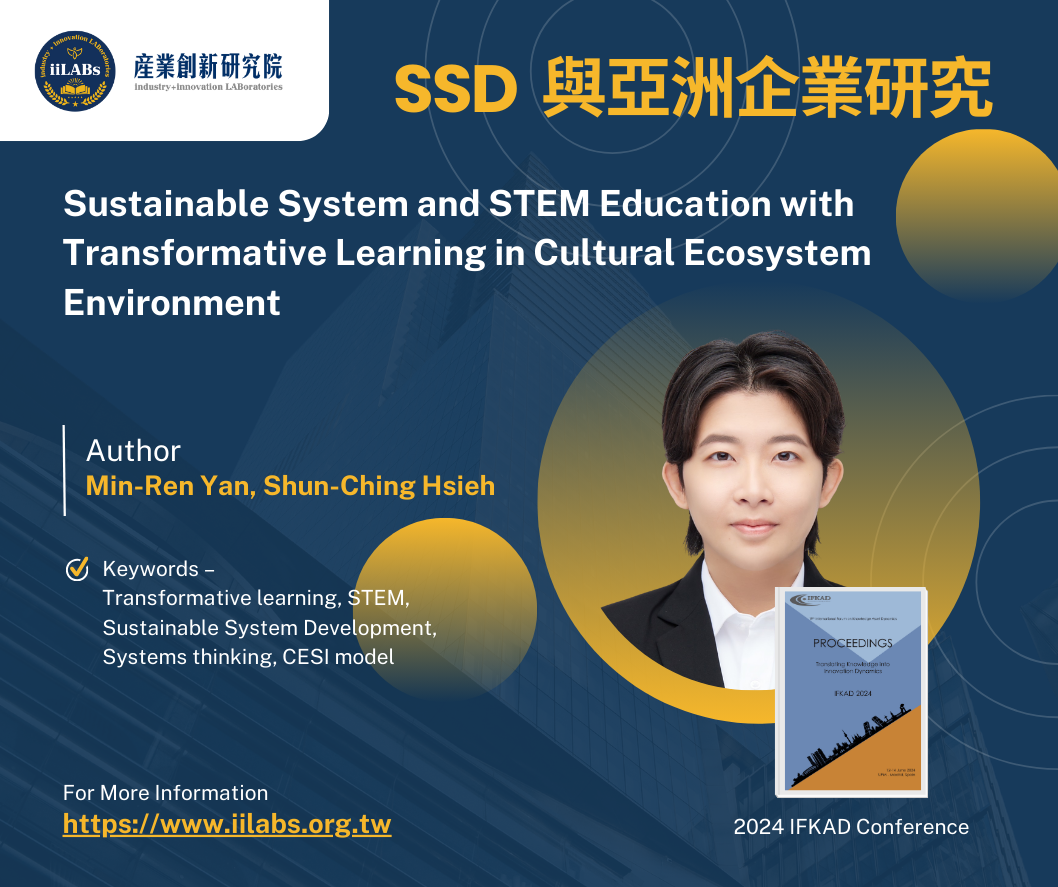


📙論文名稱:
Sustainable System and STEM Education with Transformative Learning in Cultural Ecosystem Environment
📙刊登處:2024 IFKAD國際學術研討會
📙作者姓名: Min-Ren Yan, Shun-Ching Hsieh
論文摘要:
Given the increasing focus on sustainable development goals (SDGs) and the imperative to take action for a sustainable system development, school curricula are recognized as crucial part for promoting education for sustainable development. Among all the various subjects, STEM (Science, Technology, Engineering, and Mathematics) has emerged as a key area for effectively promoting sustainability by connecting theoretical knowledge to real-life contexts. In this research, the authors investigated the cultural ecosystem environment of Fangyuan Township, Changhua, Taiwan—known for having the largest wetland in Taiwan. By applying the principles of transformative learning theory, the study observed how university students engage in the CESI model and systems thinking within the context of STEM. The ultimate goal was to deepen their understanding of sustainable systems. The research findings indicate distinct patterns in sustainability efforts within educational contexts. On university campuses, the focus primarily centers on environmental actions, including waste reduction and energy efficiency. In community engagement projects, the emphasis shifts toward social and economic sustainability. However, a gap exists—the synthesis of these three tenets remains elusive. Students often struggle to connect theoretical classroom learning with real-world application. To address this, integrating sustainability principles across STEM disciplines, using the CESI model, becomes crucial. By bridging theory and practical action, we can cultivate an intrinsic sustainability perspective in future change agents. The study's insights will inform a model that goes beyond objectives, embedding sustainable practices into daily actions.